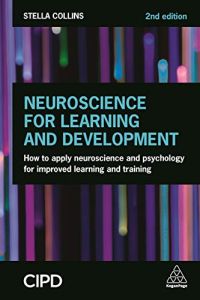
Neuroscience for Learning and Development
How to Apply Neuroscience and Psychology for Improved Learning and Training
Recommendation
Stella Collins, co-founder of the workplace training firm Stellar Labs, provides the latest neuroscientific research and concepts to help learning and development professionals understand the brain and how it learns. Her advice covers creating environments conducive to learning, and making learning “stickier” through motivation and storytelling. Collins applies neuroscience to learning, and then to translating learning to business performance. Her ideas are applicable to digital and live learning, coaching conversations and presentations. Facilitators and L&D professionals seeking scientific support to enhance their learning outcomes will especially appreciate Collins’s work.
Summary
About the Author
Stella Collins co-founded Stellar Labs and serves as its Chief Learning Officer.















Comment on this summary